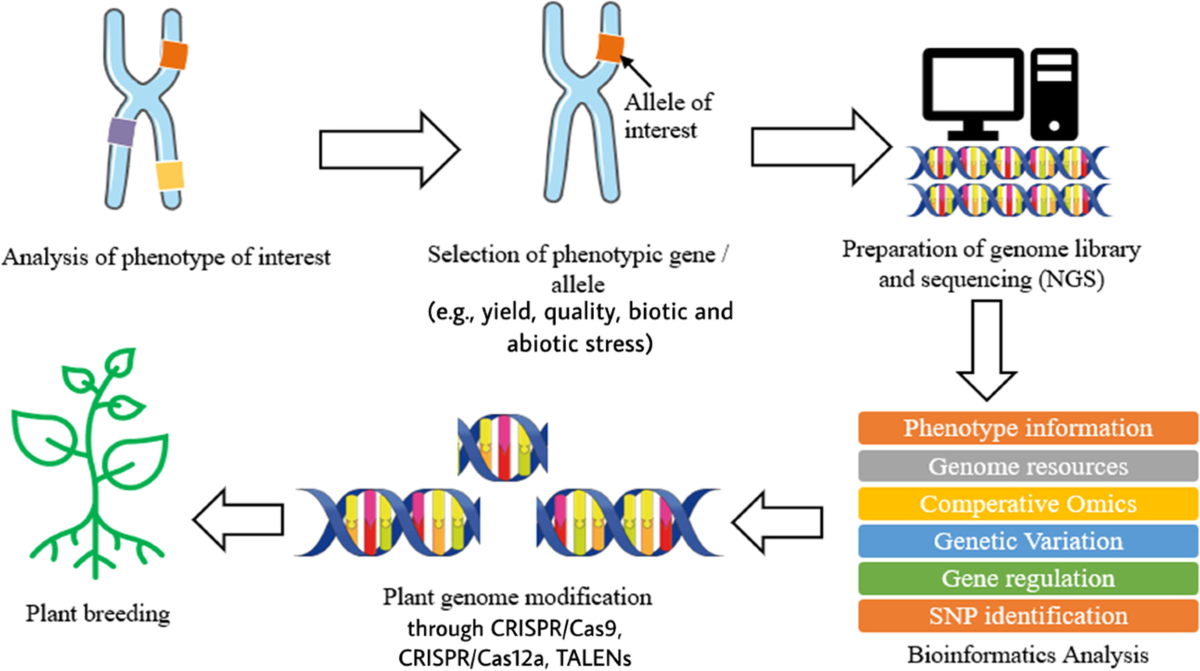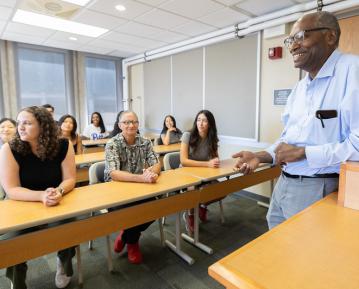What Does Bioinformatics Tutor Mean?
What Does Bioinformatics Tutor Mean?
Blog Article
The 2-Minute Rule for Bioinformatics Tutor
Table of ContentsUnknown Facts About Bioinformatics TutorAn Unbiased View of Bioinformatics TutorBioinformatics Tutor Fundamentals ExplainedUnknown Facts About Bioinformatics TutorThe Best Guide To Bioinformatics Tutor
Of the overall participants entailed in the training, 80% were trainees from public higher education institutions, while the staying 20% originated from exclusive institutions. To get a certification of involvement, students were required to go to at the very least 90% of the overall training hours. As a result of this requirement, an impressive 95% of the participants successfully obtained their certificates, having not only met the minimum participation requirements however additionally finished all appointed tasks throughout the training.
During the elevation of the COVID-19 pandemic, especially in between June and August 2020, the task group was tasked with arranging specialized training in bioinformatics. This training was particularly targeted at pupils from the research study group Center for Research in Applied Computing at the Federal University of Pará (UFRA) The adjustment to remote discovering systems as a result of the pandemic developed a possibility to explore new mentor methods and electronic devices that improved both reach and performance.
To respond to the expanding need in the computer and life scientific researches areas, a sophisticated training course was introduced in 2020 labelled Introduction to Artificial intelligence. This program was designed to supply an easily accessible yet thorough introduction of Artificial Intelligence methods, particularly as used in bioinformatics. The program was executed over 3 months, from October to December 2020, and was provided totally online through the Google Meet platform. This online style enabled involvement from trainees across Brazil, a number of whom could not have had the chance to go to in-person sessions.
Not known Facts About Bioinformatics Tutor
A significant function of this program was its focus on hands-on understanding. Around 50% of the overall training hours were devoted to practical activities where students developed smart versions and applications in a series of clinical domain names, consisting of genetics, molecular biology, and ecological data evaluation. Extensively used tools and structures such as Spyder, Google Colab, Jupyter Notebooks, and Orange were incorporated into the coursework. These platforms enabled trainees to take part in real-time information adjustment, design training, and formula trial and error.
Sixty of them were affiliated with various higher education organizations in the state of Pará, while the remaining twenty came from establishments situated in five other Brazilian states. By introducing Artificial Knowledge in a useful and relevant context, the effort served to connect the void between theory and real-world application, providing pupils with a solid foundation for future research or employment in the area.
The training campaign developed part of a broader scholastic outreach effort recognized as the Bioinformatics on the Road task. This task has, for many years, introduced loads of students to the globe of bioinformatics and computational biology. The events held under this umbrella initiative have actually happened across numerous regions and years, as summarized in Table 1 (Listing of occasions, places, years, and complete numbers of students and trainers)
Among the most exceptional end results of the Bioinformatics when traveling effort has actually been its contribution to the growth of decentralized study groups. Numerous of these groups, at first combined by their participation in training occasions, have considering that taken place to produce independent scientific research study in cooperation with local scholastic institutions. The training not only promoted scientific reasoning within the context of bioinformatics however additionally sparked joint relationships that prolonged past the training setting. These collaborations have brought about increased local scientific efficiency and contributed meaningfully to the growth of the more comprehensive bioinformatics area in Brazil.
Indicators on Bioinformatics Tutor You Should Know
The exact same team, leaving out IH and RR, also acted as tutors for the sensible training modules. Funding for the task was offered via the grant 88887.200562/ 2018-00 from CAPES.
The Federal College of Pará's Workplace of Research study (PROPESP/UFPA) additionally offered financial backing, particularly for the manufacturing of the final manuscript. The authors proclaim no industrial or economic disputes of rate of interest that could have influenced the research study. All analyses and opinions shared in this article are solely those try this out of the authors and do not necessarily reflect those of their respective institutions, the author, editors, or customers entailed in the magazine procedure.

About Bioinformatics Tutor
From a pedagogical perspective, the training strategy made use of in the training was intentionally interactive. Courses were conducted in a manner that urged trainee engagement and conversation, exceeding memorizing memorization to check out how ideas are created, used in every day life, and examined in scholastic settings. The instructional philosophy focused on nurturing both solid and having a hard time trainees, offering customized support, and structure confidence through continual mentorship and persistence.

Each group, being composed of approximately 36 individuals, was sustained by 3 coaches-- the majority of whom were postdoctoral researchers with customized knowledge. These coaches not only helped design the team tasks however also facilitated their implementation, making certain that each research study question was both suitably difficult and relevant. The objective was to supply a biologically reasonable context that individuals might explore via open-ended goals and access to curated datasets.
For added insights right into the method and outcomes of this project-based learning strategy, visitors are directed to S1 Text, that includes comprehensive summaries of the instructional framework, evaluation approaches, and project themes utilized in the training sessions.
The 10-Minute Rule for Bioinformatics Tutor
Of the overall individuals involved in the training, 80% were trainees from public greater education and learning institutions, while the staying 20% came from exclusive institutions. To qualify for a certification of engagement, pupils were required to go to at the very least 90% of the complete training hours. Notably, beyond the trainees that enrolled in the training sessions, seven knowledgeable teachers got involved in delivering the courses, while 3 dedicated research study teachers worked with the overall training process. Around 50% of the complete training hours were committed to sensible tasks where pupils built intelligent designs and applications in a variety of clinical domain names, consisting of genetics, molecular biology, and environmental information evaluation. her response The training not only fostered clinical reasoning within the context of bioinformatics however also sparked collaborative use this link connections that expanded past the training setting.
Report this page